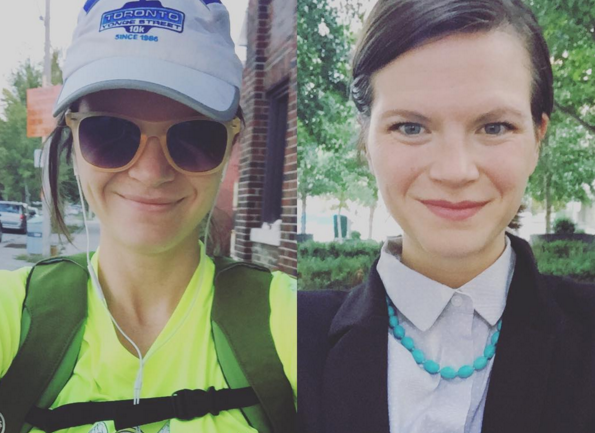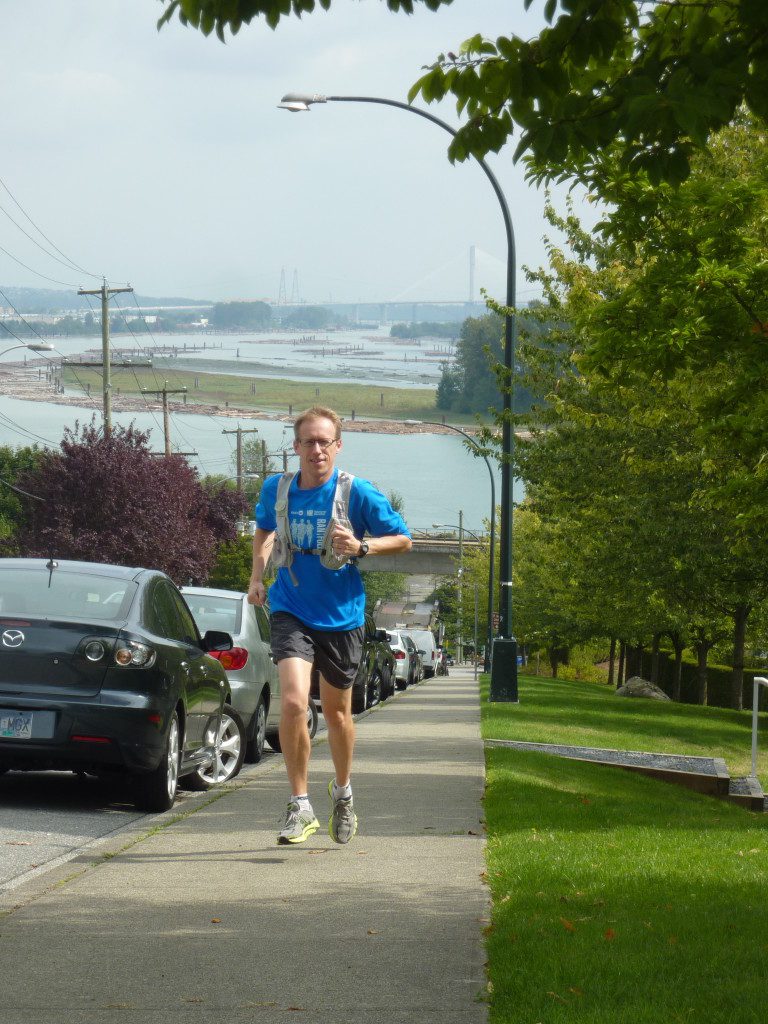How to start run commuting
It takes a bit of planning, but run commuting can be a great way to increase your mileage, improve your fitness (and your mood) and save money

Now that spring is finally here in many parts of Canada, it’s easier to get out the door for a run. And if you’re thinking about run-commuting as way to increase your weekly mileage or just avoid the hassle of more traditional modes of commuting, now is the time to get started. Here are some things to consider when planning to run-commute.

Run commuting doesn’t work for everyone–it obviously depends on the distance and the type of landscape you have to cover. But for those for whom it’s feasible, the increased fitness, the opportunity to log extra mileage in your training plan, the money saved and the clarity of thought you bring to your work after commuting on your feet can be well worth the logistical maneuvering.
How to get started
Consider a dry run (so to speak). Running to your office on the weekend will tell you roughly how long it takes (keeping in mind it might take longer when negotiating weekday traffic and street crossings) and what obstacles you might not encounter while driving or taking transit. Consult Google maps and test out various routes.

Think about clothing, and whether you could store a few outfits at work to avoid having to carry more than the barest essentials. Ideally, there’s a shower where you work, but if not, you might get by with a package of wipes and a stick of deodorant. If this is out of the question, consider storing several pairs of shorts and running shirts at the office and running home only. (Keep in mind that with this plan, you might have to carry your running shoes back to the office each morning.)
There’s no rule that says you must run both ways every day. Even replacing one or two commutes each week with running will turn up benefits in the form of money saved and better fitness and mental health.
RELATED: Stories from the run commute: “In the morning, I race Vancouver’s SkyTrain.”

One really useful piece of equipment would be a hydration vest, which can carry your water as well as extra clothing, your wallet and keys, and (if really necessary) even your notebook or iPad.
RELATED: Five Perfect Trail Packs


